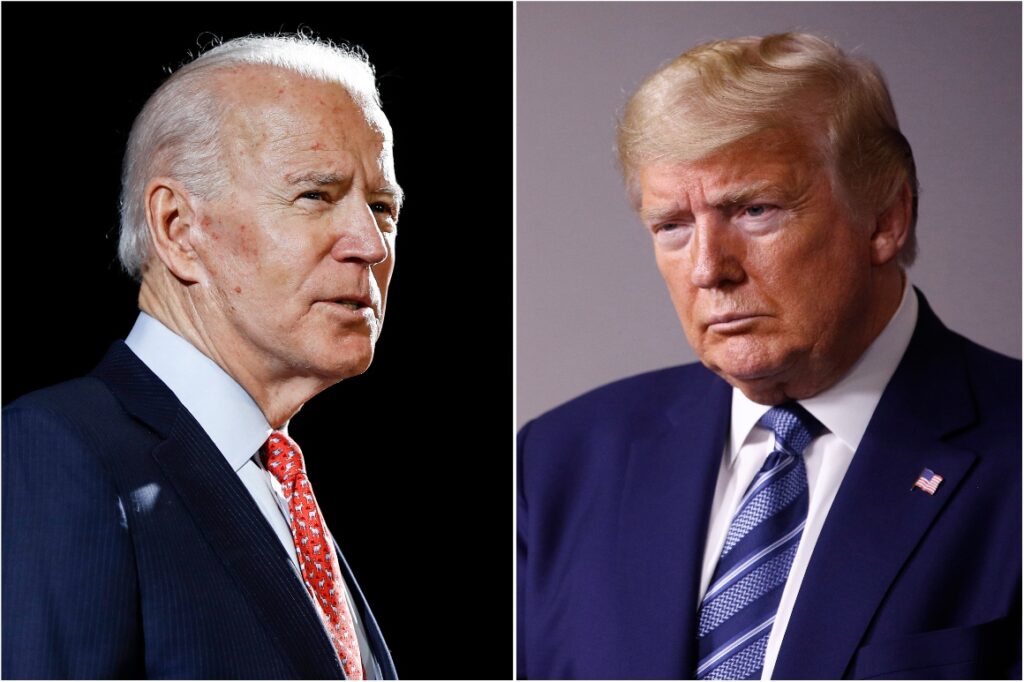On a notable Wednesday morning, President Joe Biden and President-elect Donald Trump are scheduled to meet in the Oval Office, a traditional aspect of the presidential transition. This meeting is particularly significant given the political climate and the history surrounding the 2020 election, where Trump struggled to acknowledge his defeat to Biden. Last year, Biden’s transition faced challenges due to the General Services Administration delaying confirmation of his victory, which obstructed communication between his team and federal agencies, as well as access to essential federal funds. The lack of cooperation reflected the contentious nature of the previous election and highlighted the importance of a smooth transition in preserving the integrity of the democratic process.
Biden’s commitment to support Trump in ensuring a peaceful transition stands in stark contrast to the tumultuous events surrounding the last transfer of power, which was marred by violence when a mob stormed the U.S. Capitol on January 6, 2021. That incident not only showcased the depths of division within American society but also underscored the critical need for cooperation during transitions. Notably, Trump did not attend Biden’s inauguration, reflecting ongoing tensions that persist between the former and current administrations. In this light, the upcoming meeting is more than just a routine procedural gathering; it serves as a symbol of the hope for unity and continuity in governance.
As Trump embarks on the transition process, it is being orchestrated by prominent figures from his circle, including Howard Lutnick and Linda McMahon, signaling a return to familiar relationships cultivated during his previous tenure. The transition setup also raises questions about the direction Trump intends to take with his administration, as his allies will seek influential positions in the new governmental framework. Already, Trump has appointed Susie Wiles as chief of staff, a senior advisor from his successful campaign, instilling confidence in his team and their strategic vision as they prepare to lead the nation.
In a development that reflects Trump’s ongoing engagement with the process, he recently announced the formation of his inaugural committee. This committee, chaired by investor Steve Witkoff and former Georgia Senator Kelly Loeffler, is tasked with overseeing the planning of inaugural events slated for January. Organizing these events highlights Trump’s focus on showcasing a strong start to his presidency while simultaneously solidifying connections within his network of supporters and contributors, which have historically played a vital role in American political fundraising.
Despite the formalities of the transition, the atmosphere surrounding Trump’s presidency remains charged with anticipation and scrutiny. Observers are keenly interested in how Trump’s administration will address key policy issues and governance challenges, both domestically and internationally. As alliances form and agendas unfold, the implications of Trump’s presidency will undoubtedly have lasting effects on the political landscape of the nation. The transitional phase is an essential period for both Biden and Trump, as it will set the tone for their respective administrations and the kind of leadership that will emerge over the coming years.
Ultimately, the meeting between Biden and Trump encapsulates a moment of potential reflection and dialogue, essential for fostering democratic norms and encouraging collaborative governance. The effectiveness of this transition will be judged not just by its adherence to norms but also by its ability to address the underlying tensions that have characterized recent elections. As both leaders come together in the Oval Office, it is a pivotal opportunity to reaffirm the principles of democracy — civility, respect, and cooperation, traits that are crucial for the continued functioning of American democracy amidst the backdrop of division and uncertainty that has defined recent years.

